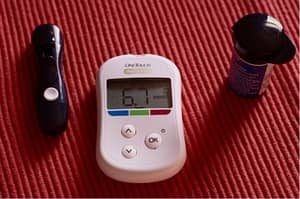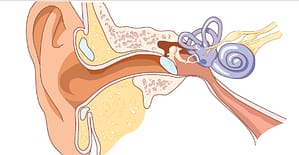[grwebform url=”https://app.getresponse.com/view_webform_v2.js?u=wfNAY&webforms_id=57753701″ css=”on” center=”off” center_margin=”200″/]
Symptoms of Diabetes : Drowsiness
Symptoms of diabetes includes fatigue and drowsiness. Dizzy spells can be quite frightening. You may feel like the room is spinning or that you are about to faint. You may feel dizzy if you stand up too quickly after sitting or lying down for a while. Your body is not used to the sudden change in blood flow and needs a moment to adjust. These episodes can be especially scary if they happen when you are driving or walking up stairs. If you’re experiencing dizziness as a diabetic, it’s important to know that there are a few different possible causes.
Low blood sugar

If you don’t eat for a while, your blood sugar levels can drop too low, leading to dizziness. When your blood sugar levels drop, your body doesn’t have enough energy to function properly. This can cause you to feel light-headed or off balance. In addition to feeling dizzy, you may also experience other symptoms like sweating, confusion, or heart palpitations. Low blood sugar can also cause you to tremble, feel anxious, and make your lips feel tingly. You may also pass out.
If you suspect you’re experiencing low blood sugar levels, it’s important to check your blood sugar levels and see a doctor if they’re consistently below 70 mg/dL. Treating low blood sugar levels is important because if left untreated, it can lead to serious complications like seizures or coma.
With that being said, drinking some fruit juice or having a spoonful of honey can help to raise your blood sugar levels and relieve the dizziness. It is a good idea to check your blood sugar level and if it increases after eating something sweet, it is then a good idea to have a small snack. This is because the juice or honey will only raise your blood sugar temporarily. You need to maintain steady blood sugar levels to avoid your blood sugars crashing again. So next time you feel a little lightheaded, reach for a snack, and don’t panic!
High blood sugar

It can also be caused by insulin resistance. Insulin helps the cells to take in glucose, which they need for energy. However, when they are resistant to insulin this doesn’t happen, the glucose stays in the blood stream and the pancreas produces even more insulin to try and correct the blood sugar levels.
All this sugar in your blood, along with elevated levels of insulin can cause your blood pressure to increase, which in turn makes you feel dizzy. This is because the large amount of insulin released interferes with the action of nitric oxide, which plays an important role in monitoring and lowering blood pressure.
Dehydration

To have adequate blood volume the body needs to have plenty of water. When the body loses water, blood volume and then blood pressure go down. This means that the brain struggles to get the oxygen which is carried in the blood that it needs. The consequence of this is dizziness, light-headedness, and weakness. Therefore, another thing to do if you are feeling dizzy or light-headed, is to drink plenty of fluids, preferably water.
Vestibular dysfunction

Vestibular dysfunction occurs when the vestibular system situated in the inner ear, which is responsible for our sense of balance, is damaged by high blood sugar levels. This can cause a variety of symptoms, including dizziness, vertigo, and trouble walking or standing. In severe cases, vestibular dysfunction can even lead to falls and injuries. If you have diabetes and are experiencing any type of balance problem or dizziness, it’s important to see your doctor so that you can be properly diagnosed and treated.
Medication
As anyone with diabetes knows, managing the condition requires careful attention to diet, exercise, and medication. One of the most common diabetes medications is metformin, which helps to regulate blood sugar levels. However, metformin can also cause some side effects, including dizziness.
The exact mechanism by which metformin causes dizziness is not fully understood, but it is thought to be related to the drug’s impact on blood sugar levels. When blood sugar le
medical attention. Though dizziness is a potential side effect of metformin, it is important to remember that the drug has been shown to be safe and effective for most people with diabetes.
vels drop too low, it can cause light-headedness and dizziness. In some cases, these symptoms may go away after a few minutes. However, if they persist or become severe, it is important to seek
Another diabetes medication that can cause dizziness as a side effect is sulfonylureas, which help to lower blood sugar by stimulating the pancreas to produce more insulin. These medications can cause low blood sugar, which can lead to dizziness. Another type of diabetes medication is thiazolidinediones, which work by increasing the sensitivity of cells to insulin. These medications can also cause low blood sugar, which leads to dizziness.
Finally, another anti-diabetic medication called alpha-glucosidase inhibitors work by slowing the digestion of carbohydrates. On their own, they do not cause low blood sugar levels and dizziness. However, as they are often taken with sulfonylureas, this can lead to hypoglycaemia and dizziness. If you are taking any of these medications and experience dizziness, be sure to talk to your doctor.
To Sum Up
Dizziness can be caused by high or low blood sugar levels, not keeping hydrated or due to diabetic medication. It is therefore, easily remedied by monitoring blood sugar levels, drinking more water or asking your doctor for a medication review. However, if you are experiencing dizziness on a regular basis, it could be a sign of serious health problems, so it is important to see a doctor right away. Treatment for dizziness will vary depending on the cause, but it is important to get the condition under control to avoid further health complications.
Here are some links to articles you may wish to read: Lightheaded? Top 5 Reasons You Might Feel Woozy , and Impact of Diabetes Complications on Balance and Falls .
[grwebform url=”https://app.getresponse.com/view_webform_v2.js?u=wfNAY&webforms_id=57753701″ css=”on” center=”off” center_margin=”200″/]



1 thought on “Symptoms of Diabetes : Drowziness”
Comments are closed.